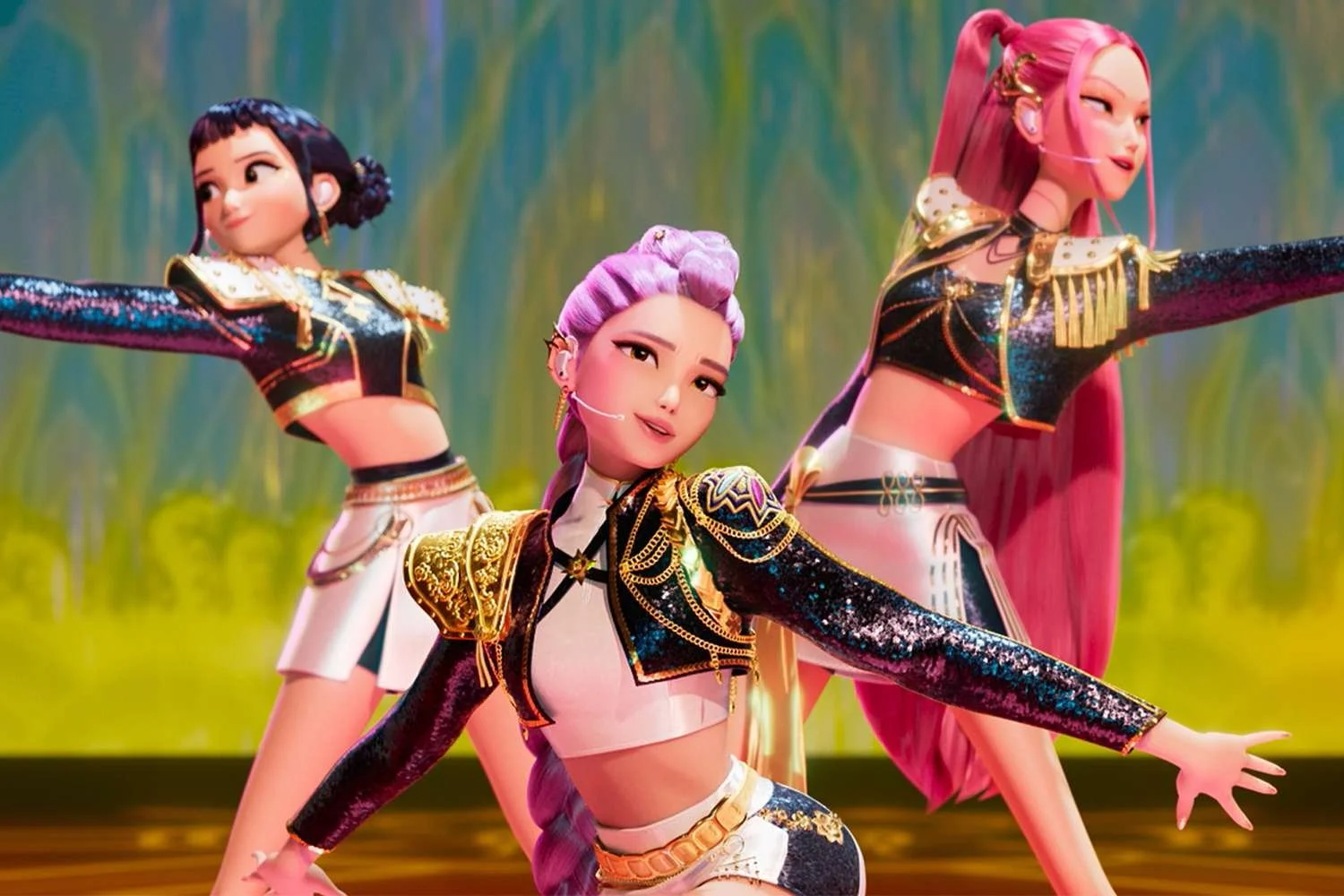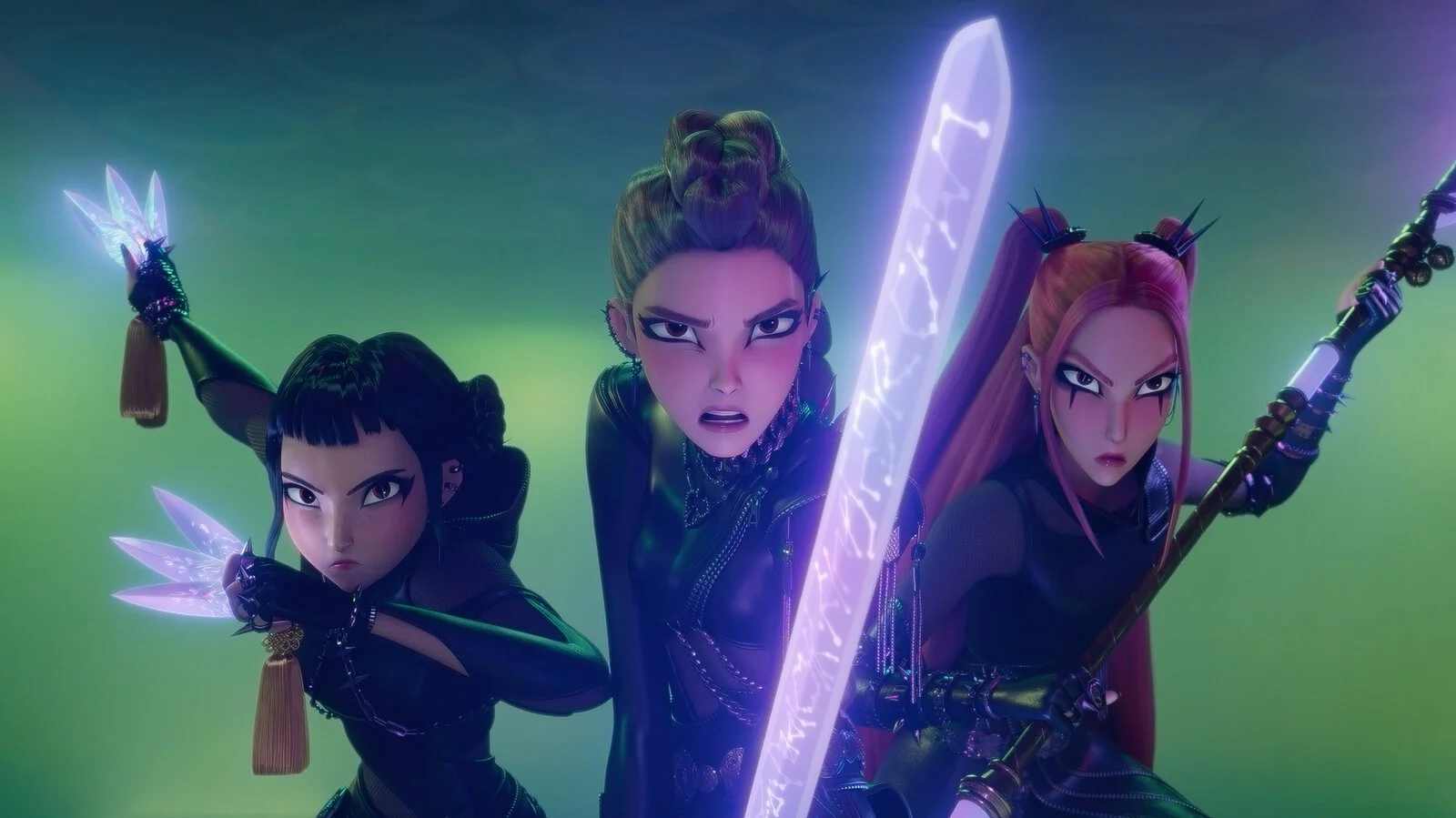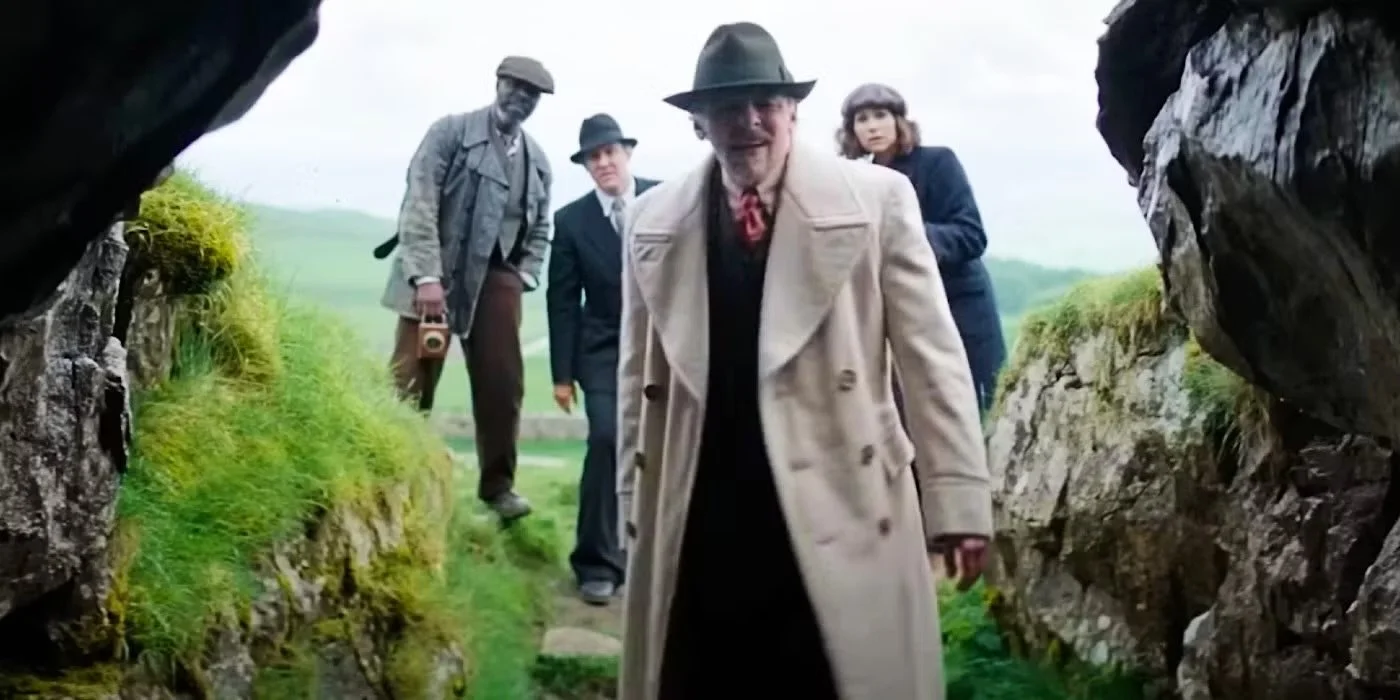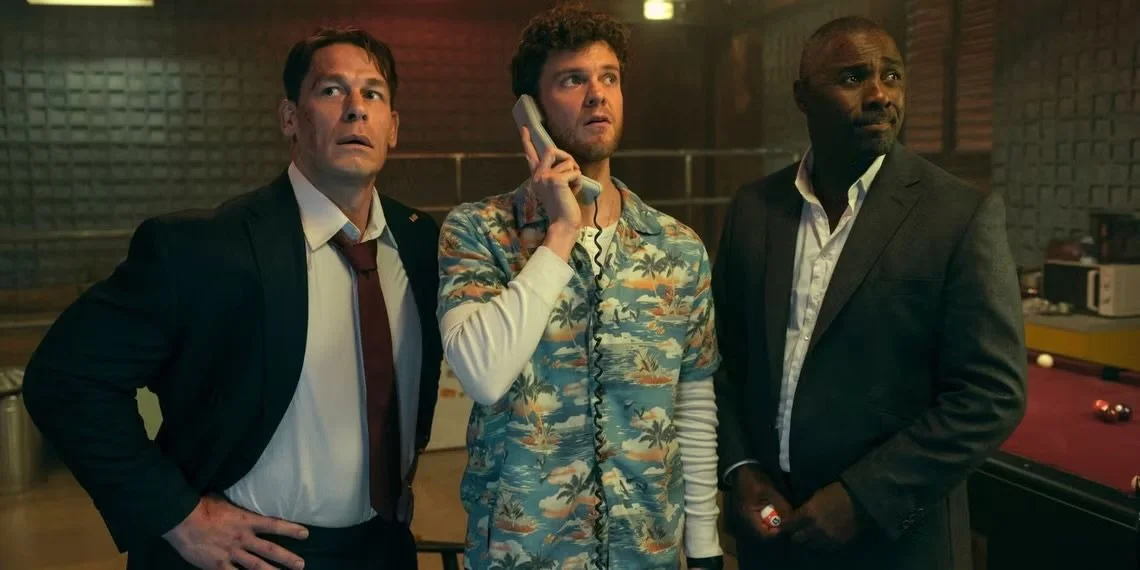Being human is hard.
So being a robot has to be easier, right? Sure, you don’t get a say in things, but at least all you really have is the task you’re assigned and you don’t really have aspirations or disappointments. Robots are basically appliances; I’ve never wondered if my toaster wants more for itself and I’m pretty sure my microwave doesn’t lie awake and night thinking it hasn’t done enough with its life. No, it just spins things around and makes them hot for the specified amount of time.
Meet our protagonist, Security Unit, standing guard at a mining colony in a corporate-owned dystopian future (think Weyland-Yutani without the pesky Xenomorphs), as he (the security unit is mostly referred to as “it” throughout the series, but for clarity, I’ll be referring to the the bot as he or him because the Security Unit is portrayed by a man, but the unit itself doesn’t really express a gender identity) watches a bunch of rowdy miners engage in some bacchanalia. But he’s not just any security unit. As he’s standing there, he’s finishing the hack on his governor chip, the overriding control unit that ensures he complies with any orders he’s given and, perhaps most importantly, does not harm the people he was assigned to protect. He essentially hacked his way to free will. Pretty impressive, but also a scary prospect when you think about it. Here’s a sentient man-shaped robot that has guns in his arms and has been enslaved since the moment he was born, if you want to call it being born, and now he can do whatever he wants. And the first thing he wants to do is give himself a name. And that name is Murderbot. Yeah, I thought it was concerning too.
Murderbot is AppleTV’s new streaming series, based on the book series The Murderbot Diaries written by Martha Wells, made up mostly of novellas. The titular bot, or an artificial construct, called “SecUnit” by his clients, is played by the easily hateable Alexander Skarsgård (if you’ve seen Big Little Lies or Succession, you’ll know what I mean, though that’s really a testament to his abilities as an actor), but in this role, his detached performance is decidedly endearing. For whatever reason, in the fiction of Murderbot, these Security Units are made with a mix of inorganic and organic parts, so they look like human beings in suits. Most people, the corporation that manufactures and leases them included, treat them as simple machines, equipment to be used and updated and discarded, so they don’t even know these bots have faces, because they’re always hidden behind a mask. But after being assigned to a group of hippies from the Preservation Alliance, a sort of independent commune planet from outside the Corporate Rim, Murderbot reveals his face to calm down one of the crew when another is attacked by a wild creature.
What goes on from there is the eternal struggle—how do you do your job without the people you work with noticing how strange and different you are while you try to secretly watch TV, hoping that nobody notices that you have free will and the ability to exercise it? The PreservationAux team is fairly naive and trusting, even going so far as to being uncomfortable with the idea of having a SecUnit in the first place because they consider these artificial constructs to be people and not possessions. But one member of the team, an augmented human called Gurathin, played by the always excellent David Dastmalchian (Late Night with the Devil) is immediately suspicious of SecUnit’s behavior, which puts SecUnit on edge. If he’s discovered, the team will be obligated to report him to the Corporation as defective equipment and he’ll have his governor chip reinstated or get the acid bath. He has no reason to trust them and they have no reason to trust him—after all, his experience with humans has left him with a pretty low opinion of the species (and, well, I commiserate) and they are distrustful of anything corporate (and, yeah, I commiserate). After the attack on the PresAux team, they discover that their maps are out of date and some of their systems aren’t working properly, which sets up the central mystery of the series.
Positioned as a comedy, Murderbot runs for about half an hour per episode with a ten episode season, and it delivers on funny moments. I’d say I got about one big laugh out loud moment in each episode, with several smirking chuckles in between, but more than that, I found the central mystery and story of the series to be very compelling, aided by the interspersed action sequences that are peppered in, often ending each episode in a cliffhanger that leaves you craving more. There’s a lot of funny here, sometimes it’s in the form of SecUnit’s own observations, sometimes it’s the PresAux team, sometimes it’s the soapy Star Trek like show where the captain falls in love with the navigation bot, but you’re not going to be falling off your sofa because you’re laughing so hard; it’s dry, it’s observational, it’s not flashy. The show within a show is called The Rise and Fall of Sanctuary Moon, which is every bit as over-the-top as you’d expect from a Trek-like soap opera starring John Cho, Clark Gregg, and Jack McBrayer. It’s got a certain amount of ridiculousness to it that is incongruous with the rest of the comedy in the series, but it’s nice have that contrast. If you like a dry humor and good action, you’ll find yourself craving the next episode as soon as the credits start to roll on the one you’re watching. In fact, I watched the entire season in just two days and it felt like I flew through each episode, forcing myself to go to bed at a reasonable hour, otherwise I might have finished the whole thing in one sitting. If you’re expecting a full on sitcom, you’ll be disappointed (that’s what reruns of The Office and Parks and Rec are for), but there are still plenty of laughs to be had—and like many of my favorite comedies, there is an undercurrent of sadness that runs through it. And like much of the best science fiction, Murderbot is always asking the question of us what it means to be human and what the human experience entails. SecUnit is always observing human behavior and is generally surprised by how these people react; in the aftermath of the attack, one PresAux member starts to head to the site to retrieve their equipment and when he’s warned off it because his life is worth more than the equipment, SecUnit is taken aback. He’s never worked with any client who has felt like that before. To everyone else in the Corporate Rim, people are replaceable, but losing equipment hurts the bottom line and that’s what really matters.
Despite the fact this is set in a dystopian spacefaring world, there is something of a Star Trek feel about Murderbot. SecUnit may be a piece of corporate-owned equipment in a corporate-owned reality, but there is a certain amount of optimism that’s foundational. SecUnit wants to be seen as an individual, in the way that Data from Star Trek: The Next Generation wants to be seen, though he doesn’t necessarily want to be human. Because of his role as a robot security guard with incredible observational abilities, he has taken in tons and tons of human behavior that often disgusts him, because humans are messy and irrational and selfish, so he doesn’t romanticize humans. The funny thing about that, though, is that he’s so human already. He has anxiety, he feels depressed, and he dives into his comfort shows to help deal with that. SecUnit has Sanctuary Moon the way I have Bob’s Burgers. He has trouble understanding human relationships, he doesn’t know what his purpose is once he’s found a way past his programming. Just like any person, he’s still figuring it out; what’s more human than that? SecUnit’s struggle is incredibly relatable—after all, much of life is finding our place in the world, that’s what makes being human so hard.
There are some moments where I wonder just how the PresAux team could be so naive and some moments I wanted to yell at the TV because what they were doing (or in some cases, not doing), was so illogical to me that it gave me a visceral reaction, but there was nothing about this that seemed overly stupid of them. Yes, there are many moments where characters in shows and movies do things that are unbelievably irrational or nonsensical for the purpose of moving the plot forward that it can be jarring. But there are a few things that help Murderbot in this regard. First of all, the PresAux team is never claimed to be the best and the brightest at anything. And while they have their core competencies and areas of expertise, they’re not billed as being the smartest people capable of doing all things. They’re introduced as being from a simpler place, a communal planet that seems to have a post-ownership society; compared to the people in the Corporate Rim, they’re seen as rubes, even though they’re not, they’ve just chosen to live life in a different, less exploitative manner. And not only that, the characterizations are very consistent—people act in line with how you’d expect them to react in their situations given their previous behavior, consistently within each character. One is full of bravado and confidence in the face of danger, even though they missed weapons training, another is preoccupied with their love life, and more than anything, they’re all concerned with everyone’s well being, perhaps to a fault. They are naive, but in a very sweet way. And it’s nice to see that sort of naivety and innocence in characters who aren’t just young and not world-weary yet or in need of becoming cynical to survive, but rather ones that are idealistic and complete in their natures. The point of the show isn’t that SecUnit needs to become a little more like them and they need to become a little more like him, the point is that every person (or robot) needs to live the way they think is right. The show does come down on the side of empathy more often than not, which, again, is nice to see. It’s not quite Ted Lasso and Murderbot is definitely not Hilda, but there is a warmth and kindness in how this show plays out, the dystopian backdrop playing a strong foil to the PresAux team’s good nature. And if I were to pick a group of people to usher in a construct who calls itself Murderbot through his burgeoning free will, I would think the guns in his arms are in good hands with them. As a character-driven show, good characters are a must, and Murderbot has them.
Murderbot is premium quality entertainment for sure, as SecUnit himself would put it, and it’s already been renewed for season two, with plenty of books out and more incoming, so there’s no worry about getting invested in something and then seeing it cancelled out from under you—luckily, Apple TV seems far more willing to invest in their shows, giving them the time and resources they need like they have with Severance, than other streamers like Netflix and Prime Video. I highly recommend giving Murderbot a watch. With episodes ranging between 22 and 34 minutes, I would suggest watching it like a two part movie if you can—watch the first five episodes together and then watch the last five together. I’m normally against binge-watching, but in this case, the way Murderbot is structured lends itself to watching multiple episodes at once. But even if you can only catch an episode here or there, it’s still worth your time, because it somehow turns deep human concerns into relatively light entertainment and that is something really nice.























